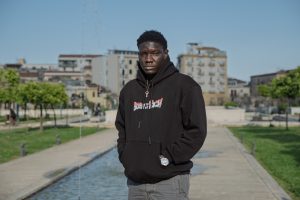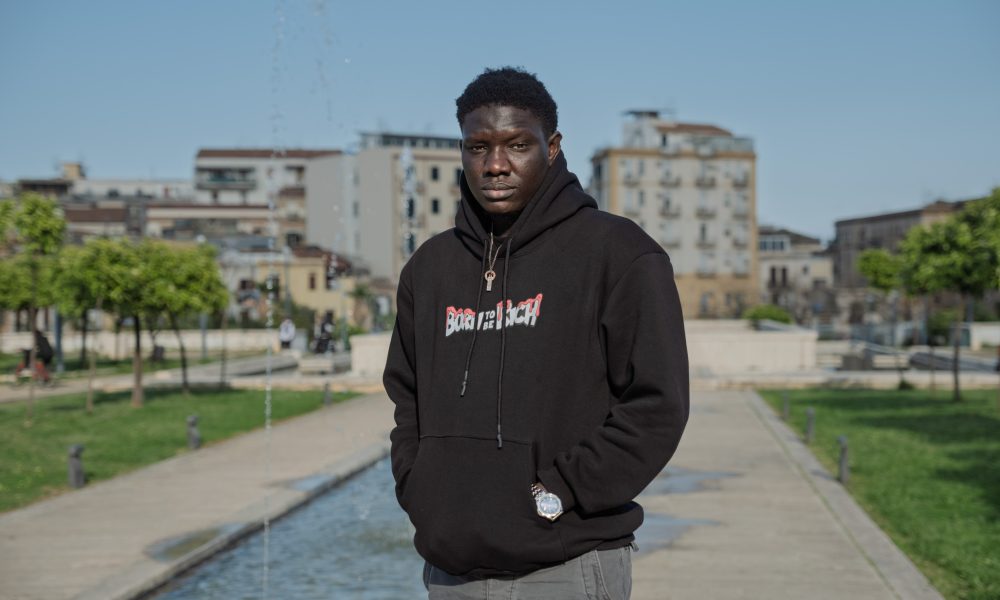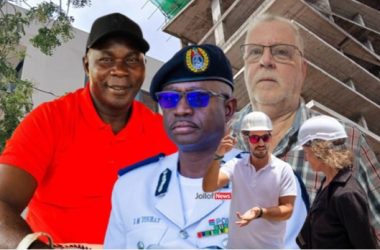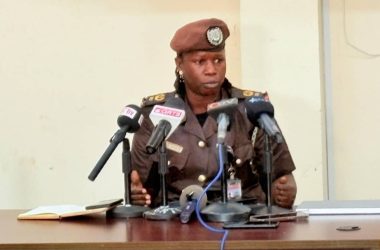A young Gambian man who survived torture, detention, and near-death conditions during his journey to Europe is now rebuilding his life in Italy after receiving a life-saving heart transplant.
Kalifa, originally from The Gambia, left home in search of safety and a better future. His journey took him through Senegal, Mali, Algeria, and finally Libya where his nightmare began. “We went through the desert and Libya. In Libyan prisons, I saw people being killed and women raped in front of me,” Kalifa told Médecins Sans Frontières.
He spent months locked in a series of prisons, suffering beatings and torture at the hands of smugglers and militia. By the time he reached Italy, his heart was failing. Doctors in Palermo gave him a second chance at life. “In Italy, they gave me another heart because mine wasn’t working,” he said. “I thank God I’m still alive. There are many things I can’t do, but I’m alive I can work, I can enjoy small things.”
Now living in Palermo, Kalifa is learning to sew, writing music, and working toward becoming an intercultural mediator someone who helps bridge cultural gaps between migrants and locals. He hopes to support others who’ve faced similar trauma. “There are many people who went through what I went through and didn’t make it. I now know how lucky I was.”
Kalifa is one of 160 people mostly young men assisted by Médecins Sans Frontières (MSF), also known as Doctors Without Borders, through a rehabilitation project for survivors of torture in Palermo. A new MSF report, Inhuman. Torture Along the Mediterranean Migration Route, paints a grim picture of what many African migrants endure as they make the dangerous journey to Europe.
Torture Common on the Road to Europe
According to MSF’s data, more than 60% of reported torture cases took place in Libya. Many occurred in prisons or detention centres run by militias or smugglers. Tunisia also ranked high in reported abuse cases. Shockingly, 36% of torture survivors were tortured in countries the European Union and Italy label as “safe” for repatriation including Gambia, Senegal, and Ghana.
The report found that in over 60% of cases, smugglers were responsible for the torture. In another 30%, it was police or law enforcement agents. Most survivors had been tortured while trying to flee war, persecution, or poverty. Many were beaten, burned, electrocuted, or sexually assaulted.
Women, in particular, face added risks. MSF reports that 80% of its female patients experienced sexual and gender-based violence during their migration journey, often alongside other forms of torture. Some men also reported sexual abuse or being forced to witness the rape of their partners or relatives.
Long-Term Effects and a Fragile Recovery
Survivors don’t just carry physical wounds. Many struggle with deep psychological trauma. Two out of three MSF patients suffer from PTSD, and many report ongoing anxiety, depression, nightmares, or feeling emotionally disconnected.
“Torture tries to destroy a person’s identity,” said Monica Rugari, an MSF psychologist in Palermo. “The body remembers the pain, but the mind gets stuck in it. Our job is to help rebuild what was broken.”
MSF’s team works closely with survivors, offering therapy, legal support, and medical treatment. One of their tools is a storytelling exercise where patients use stones to represent traumatic events, flowers for good memories, and candles for loss. “There are always flowers among the stones,” said MSF’s Grazia Armenia, “because as long as we are alive, there is still a story to write.”
A New Chapter for Gambian Survivors
For Gambians like Kalifa, who risk everything to reach Europe, survival is only the first step. Trusting others again, imagining a future, and reclaiming self-worth are often harder than the journey itself.

“It was hard to trust people again,” said Olivier, another MSF patient originally from Côte d’Ivoire. “Sometimes I feel like I’m not really living, just surviving. But therapy is helping me rebuild my idea of the future.”
Kalifa is determined to use his experience to help others, especially fellow Gambians who may be thinking of taking the same dangerous route. “We need to talk about what really happens out there,” he said. “It’s not just about reaching Europe it’s about surviving what comes in between.”





